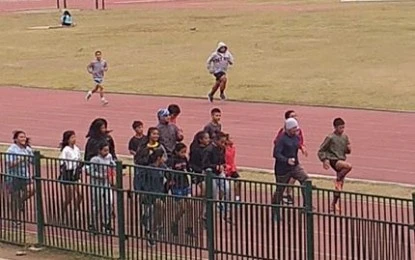WEHI researchers are tracking the healthcare experiences of culturally diverse men with prostate cancer for the first time, in a landmark project aimed at closing the healthcare gap in patient care.
The project will assess the lived experiences of hundreds of patients from culturally and linguistically diverse (CALD) backgrounds to better understand how cultural barriers impact their care and outcomes.
The study, funded through a Movember grant, is the first in Australia to collect such comprehensive data about the healthcare journeys of CALD patients in hopes of creating a more equitable healthcare system.
At a glance
· Researchers will monitor the healthcare experiences of CALD men with prostate cancer for the first time, in a landmark project aimed at closing the healthcare gap in cancer care.
· The project will look at how cultural and language barriers can negatively impact access to health care and potentially lead to poorer health outcomes in this cohort of patients.
· The findings will help inform health policies that could make strides towards providing inclusive care for all patients in Australia.
Prostate cancer is the most common cancer in Australian men, with 1-in-5 males diagnosed with the disease.
While the reported incidence of prostate cancer among immigrant men is lower, this is believed to be due to lower screening rates, likely underpinned by language and cultural barriers.
To address this challenge, WEHI researchers launched PROCAP – a project aiming to better understand and address the barriers facing CALD men with prostate cancer.
Clinician researcher Associate Professor Ben Tran has personal insight into the issue, with his Vietnamese grandfather dying of metastatic prostate cancer in 2005.
Instead of being prescribed a standard hormone therapy that reduces testosterone levels, his grandfather was advised to have both testicles surgically removed, causing significant distress to him and his family.
Assoc Prof Tran says language barriers and subsequent difficulties navigating the Australian healthcare system are likely to have impacted the care that was provided and believes stories like this are just the tip of the iceberg.
“Australia is one of the most multicultural countries in the world, with culturally and linguistically diverse individuals representing a third of the population,” Assoc Prof Tran, also a co-lead on PROCAP, said.
“But they can often face greater challenges when accessing healthcare due to various language and cultural factors.
“Anecdotally, we also hear that patients who speak a language other than English report lower satisfaction ratings following healthcare experiences, have higher rates of adverse events from healthcare and increased rates of preventable hospitalisations. But there’s currently no data to support these anecdotal observations.
“We hope our study will generate the data needed to change this narrative and help efforts to advocate for minority groups that historically don’t have great advocacy in the healthcare system.”
Unprecedented data
PROCAP will enrol 300 CALD patients with advanced prostate cancer over the next two years, with participants completing a series of questionnaires that aim to capture their healthcare experiences and quality of life at specific time points along their treatment course.
WEHI researcher and project co-lead, Dr Arsha Anton, said the patient responses will provide insight into the treatment journeys of minority groups who continue to be underrepresented in Australia’s healthcare system.
“Clinical trials often don’t include enough patients from culturally diverse populations, so very little is known about their experiences with prostate cancer, ability to cope with certain treatments and patient-reported outcomes,” Dr Anton said.
“The aim of PROCAP is to compare the quality of life and healthcare experiences of CALD patients with other Australians to identify the areas in need of extra support.
“Having access to this real-world data would help us understand how cancer treatments and consultations should be tailored for these individuals, to ensure they feel safe and confident within our healthcare system.
“We want everyone in Australia to feel assured that they will always get the best healthcare locally available, irrespective of cultural background. This project is a huge step forward in bolstering that trust within multicultural communities.”
Researchers say PROCAP may also be used as a framework in other cancer types, to track the healthcare experiences of CALD women and their treatment experiences in the future.
Study participants will be selected through ePAD – a multinational registry that collates demographic, treatment and outcome data of patients with advanced prostate cancer.
The project, “PROCAP: Using Patient-Reported Outcome and Experience Measures to Identify and Overcome Disparities in CALD Patients with Advanced Prostate Cancer,” is supported with over $398,000 in funding from Movember’s Personalised Prostate Cancer Care Initiative.
Sarah Weller, Global Director of Prostate Cancer at Movember, said: “Movember’s committed to ensuring that every man has access to the best possible prostate cancer care.
“The PROCAP study is a critical step toward addressing the healthcare inequities faced by multicultural communities, ensuring that cultural and language barriers don’t stand in the way of better health outcomes.
“Through our Personalised Prostate Cancer Care Initiative, we are proud to be funding this groundbreaking research alongside five other global projects, bringing our total investment to $2.1 million.
“By supporting studies like PROCAP, we can drive real change in healthcare systems worldwide, ensuring that men receive care tailored to their unique needs and experiences.”
This press release has also been published on VRITIMES



